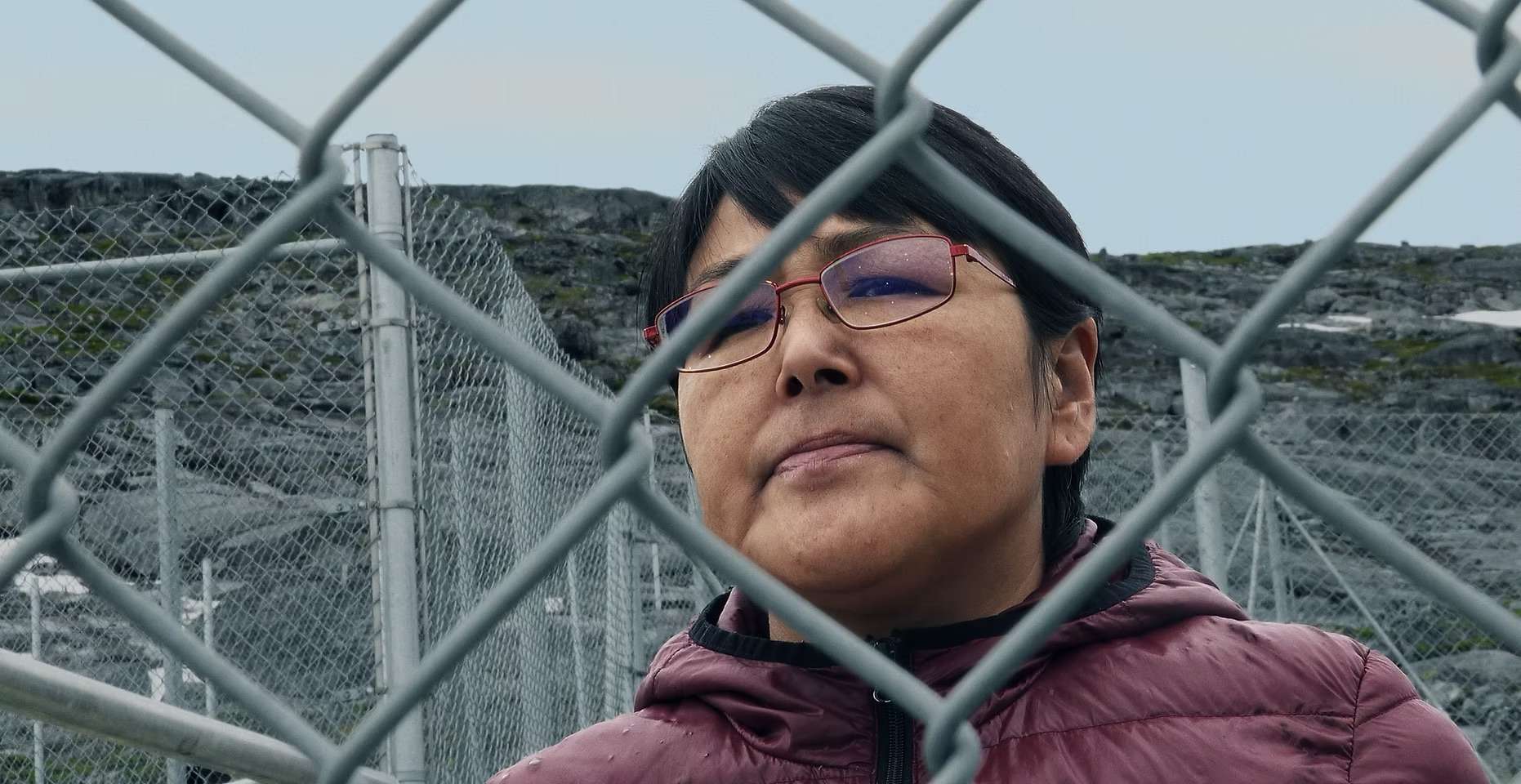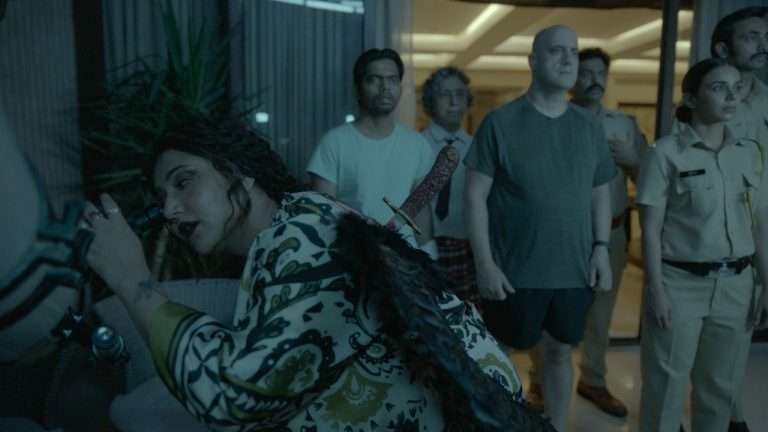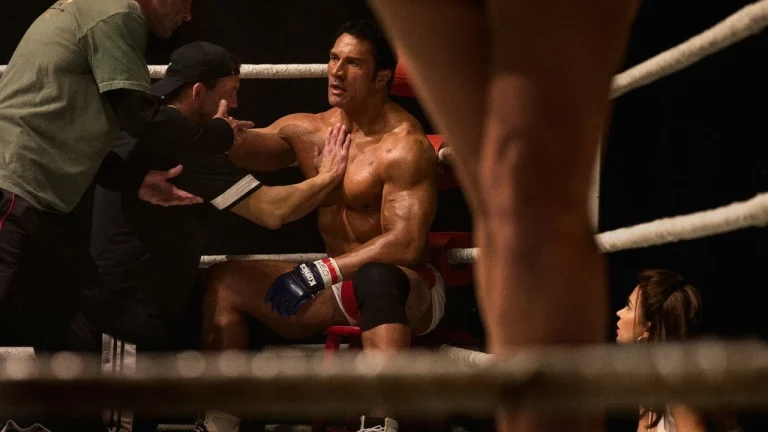“Walls – Akinni Inuk” (2025) is a discomfiting, necessary intervention. An articulation of the repressed, silences exploding, the film is a plea for compassionate, sustained attention. Directors Sofie Rørdam and Nina Paninnguaq Skydsbjerg turn their gaze on Ruth, who’s serving an indefinite sentence—and with her, Greenland’s peculiar criminal probation scheme.
In Greenland, correctional cells, we are told, are kept partially open, encouraging inmates’ gradual return to society’s folds. There’s much Greenland shares in terms of administration with Denmark, and the gaps encompass a large window for legal challenges, cases of several convicts with a wholly suspended sense of future. Set in Nuuk, this wrenching look at captivity burrows beneath layers of the unspoken.
Ruth reveals a history of enduring sexual abuse. There have been numerous episodes. For the longest time, she didn’t have an outlet, someone whom she could talk to in detail and be heard. A stormy relationship with her mother, fights at home, meant there was always unsettling emotional volatility. It made the act of unburdening her trauma doubly impossible. Any channel of open, heartfelt communication grew curdled with a roaring need for revenge against the abuser.
There’s confrontational honesty in the film, the kind that pierces past judgment and hesitation. Between the two, Nina and Ruth, a safe, trusting space forms, each leaning on the other, though the stakes are not balanced. But the fact of a listening ear, a shoulder to rely on as one wades through the toughest personal issues, goes a long way in moving towards healing. It’s constructive and builds one back from a state of permanent devastation. So much grief and rage spark off not being able to talk about what bugs one.
More convergences are binding the two than they could have possibly envisaged. It’s the painful sort of bonding, nonetheless, each shows only the gentlest way of turning the other towards anchorage. Nina’s mother passes, setting forth anxieties and anguish entrenched deep within right from her childhood.

When the two come together, there are no barriers. There’s comfort and intimacy in this mutual understanding, one lending the other a hand through the dark. What looks unfathomable, impossible, seems slightly doable if one enables the other with kindness and sincere attention. Ruth becomes a friend and mother to Nina. The latter has had a stormy life at home, with her mother slipping into alcoholic rages. It was an environment of fear that made Nina hyper-cautious at all times, being on a knife’s edge about how to pre-empt and navigate tense situations.
Since her inmate life kicked off, Ruth has barely spent a day with her kids. In an aching admission, she remarks that she and her kids imagine the kind of day they would have together if and when allowed. The affection and deep, proactive empathy she receives from Nina is a bolstering force, sailing her through pits of despair and absolute uncertainty. Is there even an end to the road? Should she just abandon hope?
As someone indefinitely sentenced, there’s no clarity on the terms, treatment is limited as well. Ruth insists she now can differentiate between right and wrong, wishing she had known earlier what she has come to terms with. But who’s overseeing her reform? Ruth is just abandoned. She laments that her emotions aren’t even considered, nor is she held as a human.
Nina seeks distance from everyone, shutting herself up, whereas Ruth craves company. The two strike an unlikely common ground filled with abundant concern. Nina keeps checking up on Ruth as years accrue. It’s not a one-off interest; instead, someone who finds her way into Nina’s most intimate, unguarded space of expression. Pain has to be encountered, made sense of directly before closure can come in.
The two occupy an inextricable relationship. Nina confesses that there have been a number of times when she, too, had a thrusting desire to take vengeance on those who hurt her. But now she knows such a line of thought is self-defeating. “Walls – Akinni Inuk” traverses this gradual widening of understanding with extraordinary, shattering candour. There’s mourning palpable, for the terrible, chafing past, but also a gesture towards new, emboldened vitality.



![Free Solo [2018]: A New High](https://79468c92.delivery.rocketcdn.me/wp-content/uploads/2018/11/free-solo-National-Geographic-hof-1.jpg)



![Don’t Look Up [2021] Review – Adam McKay Delivers A Strong Pre-apocalyptic Movie Filled With Solid Performances](https://79468c92.delivery.rocketcdn.me/wp-content/uploads/2021/12/Dont-Look-Up-1-768x512.jpg)
![Captain Marvel [2019] Review: Strong Hero, Weak Movie.](https://79468c92.delivery.rocketcdn.me/wp-content/uploads/2019/03/Captain_Marvel_HOF_Review-768x321.jpg)